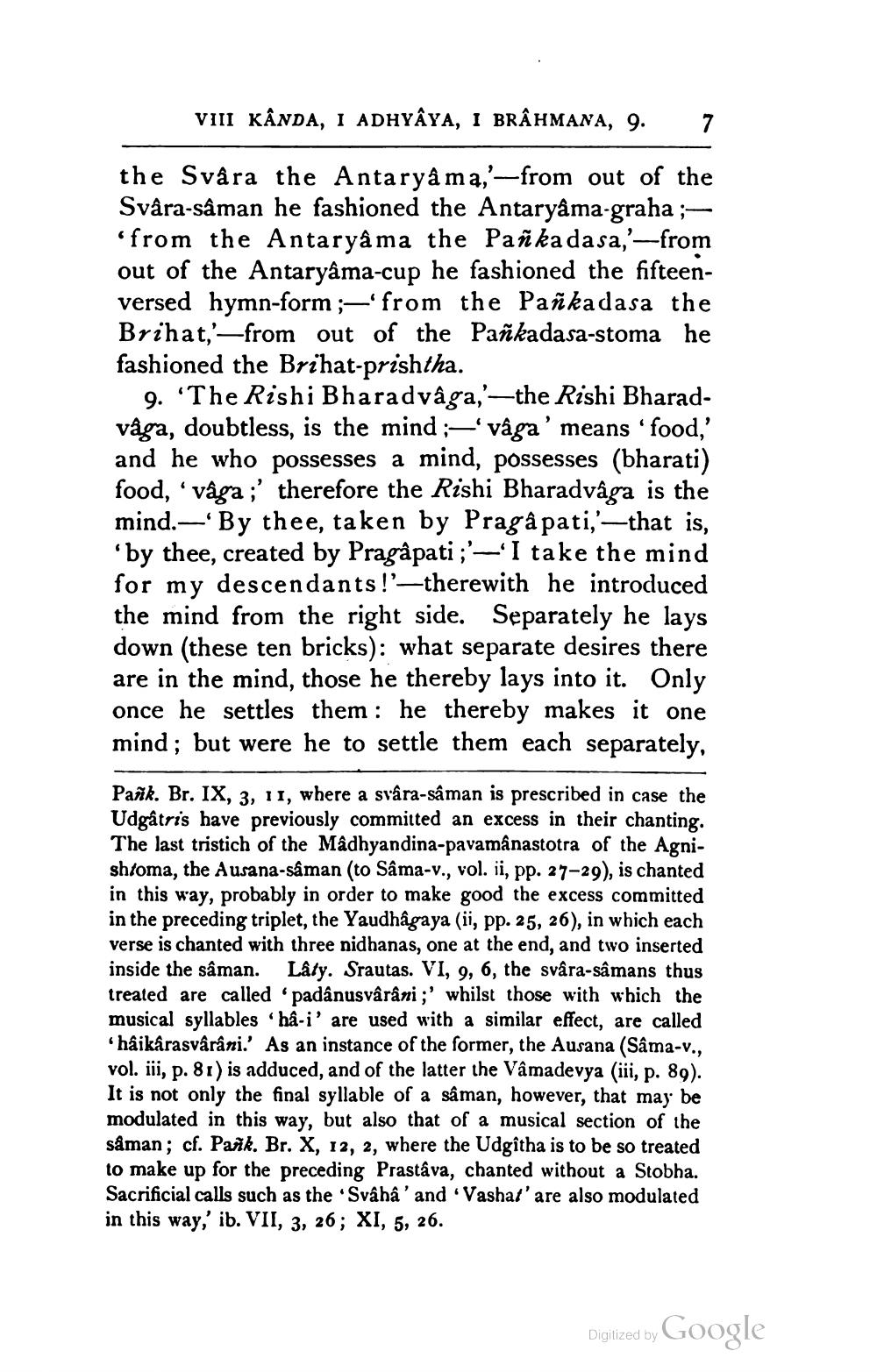________________
VIII KÂNDA, I ADHYÂYA, I BRÂHMANA, 9.
7
the Svåra the Antaryâ ma,'-from out of the Svâra-saman he fashioned the Antaryâma-graha ;
from the Antaryâ ma the Pañkadasa,'--from out of the Antaryâma-cup he fashioned the fifteenversed hymn-form ;-'from the Pañkadasa the Brihat,'—from out of the Pañkadasa-stoma he fashioned the Brihat-prishtha.
9. 'The Rishi Bharadväga,'—the Rishi Bharadvåga, doubtless, is the mind ;– våga' means 'food,' and he who possesses a mind, possesses (bharati) food, vaga ;' therefore the Rishi Bharadvága is the mind.—By thee, taken by Pragâ pati,'—that is, 'by thee, created by Pragàpati ;'—' I take the mind for my descendants !'—therewith he introduced the mind from the right side. Separately he lays down (these ten bricks): what separate desires there are in the mind, those he thereby lays into it. Only once he settles them: he thereby makes it one mind; but were he to settle them each separately,
Pask. Br. IX, 3, 11, where a svâra-sâman is prescribed in case the Udgâtris have previously committed an excess in their chanting, The last tristich of the Madhyandina-pavamânastotra of the Agnishtoma, the Ausana-saman (to Sâma-v., vol. ii, pp. 27-29), is chanted in this way, probably in order to make good the excess committed in the preceding triplet, the Yaudhagaya (ii, pp. 25, 26), in which each verse is chanted with three nidhanas, one at the end, and two inserted inside the saman. Laty. Srautas. VI, 9, 6, the svara-samans thus treated are called padânusvârâni;' whilst those with which the musical syllables "hâ-i' are used with a similar effect, are called "hảikárasvârâni.' As an instance of the former, the Ausana (Sâma-v., vol. iii, p. 81) is adduced, and of the latter the Vâmadevya (iii, p. 89). It is not only the final syllable of a sâman, however, that may be modulated in this way, but also that of a musical section of the såman; cf. Pank. Br. X, 12, 2, where the Udgîtha is to be so treated to make up for the preceding Prastáva, chanted without a Stobha. Sacrificial calls such as the 'Svâhâ' and Vashat' are also modulated in this way,' ib. VII, 3, 26; XI, 5, 26.
Digitized by Google




